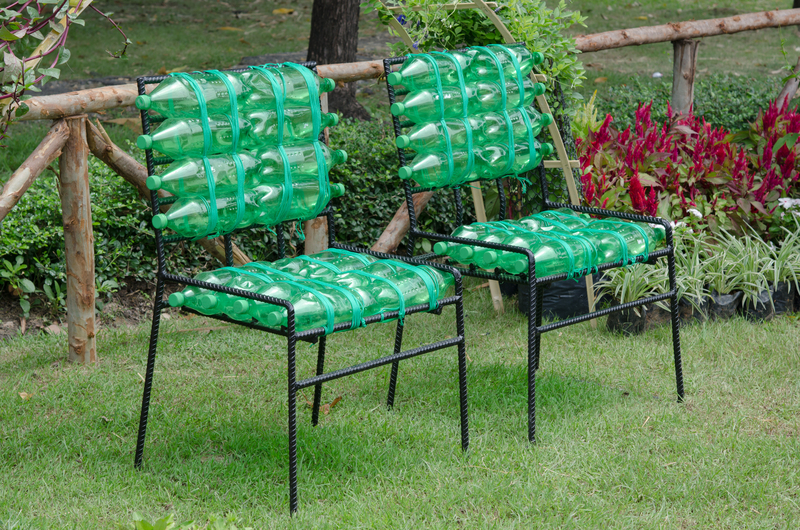Guide to Efficient Waste Prevention for a Greener Home
Are you eager to transform your living environment into a more sustainable, eco-friendly haven? Efficient waste prevention isn't just beneficial for the planet--it can save you money, time, and energy too. This guide provides a comprehensive roadmap for reducing waste at home while enjoying a greener, cleaner lifestyle. Explore practical tips, actionable strategies, and insightful solutions for effective waste management, all tailored for conscious homeowners and green enthusiasts.
Why Is Waste Prevention at Home So Important?
Household waste remains one of the most significant contributors to landfills and environmental pollution. By actively preventing waste, you can:
- Reduce your environmental footprint
- Conserve valuable resources
- Save on utility and disposal costs
- Improve your indoor air quality and overall well-being
Waste prevention goes far beyond recycling or composting; it's about making smarter choices from the very beginning to avoid waste altogether.

How to Efficiently Prevent Waste at Home
1. Rethink and Reduce: The Foundation of Greener Living
Efficient waste prevention begins with rethinking your consumption habits. By identifying unnecessary purchases and minimizing what you consume, you naturally generate less waste. Here's how to start:
- Audit Your Waste: Keep a log of your household trash for a week. Analyze the types of waste you generate most. Are they food scraps, packaging materials, plastic bottles, or something else?
- Buy Only What You Need: Avoid impulse purchases--especially in groceries and household goods. Making a list before shopping can help curb unnecessary buying.
- Say "No" to Single-Use Items: Opt for durable, reusable alternatives instead of disposable products like plastic utensils, plates, and straws.
2. Smart Shopping for a Sustainable Household
Greener home waste management starts with mindful shopping habits:
- Choose Minimal Packaging: Pick products with little or no packaging, or those with recyclable or compostable packaging.
- Buy in Bulk: Purchasing in bulk often reduces packaging waste while being cost-effective.
- Support Local and Sustainable Brands: Local goods typically travel shorter distances, requiring less packaging. Sustainable brands use eco-conscious methods that minimize waste.
3. Reuse and Repurpose: Maximizing Every Resource
Before discarding, ask yourself: Can I reuse or upcycle this item? Efficient waste prevention at home relies on creative thinking:
- Repurpose Glass Jars and Containers: Use old jars for storage, as plant pots, or as creative gifts.
- Transform Old Textiles: Convert worn-out clothes into cleaning rags or use them in crafts.
- Repair Before You Replace: Fixing broken appliances, shoes, or furniture can extend their life and save resources.
Avoiding the landfill is easier when you find new purposes for items others might consider trash.
4. Composting: Nature's Way to Prevent Food Waste
Home composting is a fantastic method for turning kitchen scraps and yard waste into valuable soil for your garden. Here's how to begin:
- Set Up a Compost Bin: You can buy a compost bin or make your own with simple materials.
- Know What to Compost: Suitable items include fruit and vegetable peels, coffee grounds, eggshells, and garden trimmings. Avoid dairy, meat, and oily foods.
- Balance Greens and Browns: Alternate nitrogen-rich material (green) with carbon-rich material (brown) for efficient decomposition.
- Use Finished Compost: Apply composted material to your garden to improve soil quality and reduce the need for chemical fertilizers.
Composting not only diverts organic waste from landfills but also supports a closed-loop system in your home.
5. Optimize Recycling: Smart Sorting for Maximum Impact
Waste reduction at home is incomplete without effective recycling. However, not all materials are recyclable, and contamination can render entire batches of recyclables unusable.
- Understand Your Local Recycling Guidelines: Each municipality has different rules. Learn which plastics, papers, and metals your facility accepts.
- Clean and Sort Recycling: Rinse containers and sort materials as directed to minimize contamination.
- Look Beyond Curbside Recycling: Many items like batteries, electronics, and lightbulbs require special recycling facilities.
Efficient Waste Prevention Tips for Every Room
Kitchen: The Heart of Waste Reduction
- Plan Your Meals: Avoid overbuying and food spoilage with weekly meal planning.
- Use Reusable Bags, Containers, and Wraps: Replace single-use plastic bags with canvas totes and glass or stainless steel containers.
- Preserve Leftovers: Freeze extra portions and get creative with leftovers to minimize food waste.
Efficient kitchen waste prevention can dramatically cut your household trash output.
Bathroom: Swap Out Disposable Products
- Choose Reusable Cloths Instead of Paper Towels
- Switch to Bar Soap and Refillable Products
- Buy Bulk Toilet Paper with Recyclable Packaging
- Avoid Plastic Razors and Opt for Safety Razors
Simple swaps save money and reduce the volume of non-recyclable bathroom waste.
Laundry Room: Cleaner Clothes, Cleaner Planet
- Use Eco-Friendly Detergents in Bulk Packaging
- Washing Clothes in Cold Water Saves Energy
- Air-Dry Laundry When Possible to Preserve Textiles and Save Electricity
Living Room and Home Office: Digital Declutter
- Go Paperless: Opt-out of junk mail, switch to online billing/statements
- Donate or Recycle Electronic Waste Responsibly
- Think Secondhand for Furniture or Decor
Advanced Strategies for Efficient Household Waste Management
Engage the Family: Waste Prevention as a Team Effort
Educating all household members about greener habits ensures lasting change. Try these tips:
- Involve Kids in Waste Sorting and Composting
- Set Up Visible Recycling and Composting Stations
- Track Family Waste Goals and Celebrate Progress
Utilize Technology for a Greener Household
- Smart Appliances Reduce Energy and Resource Consumption
- Waste-Tracking Apps Help Monitor Progress
- Community Sharing Platforms Reduce Unnecessary Purchases (e.g., tool libraries, buy-nothing groups)
Zero Waste Events and Parties: Entertain Sustainably
- Use Reusable Tableware for Gatherings
- Decorate with Natural or Upcycled Materials
- Compost Food Scraps from Parties
Hosting with sustainability in mind can inspire guests and keep your waste to a minimum.
Benefits of Effective Home Waste Prevention
- Lower Trash Collection and Disposal Costs
- Minimal Environmental Impact Through Reduced Resource Extraction
- Cleaner, Healthier Living Spaces
- A Positive Example for Neighbors, Community, and Children
Efficient waste prevention for a greener home makes a real difference, both for your family and the planet's future.
Common Challenges and Practical Solutions
1. "I Don't Know Where to Start"
- Start Small: Pick one area, like reducing plastic or setting up a compost bin.
- Educate Yourself: There are many resources, guides, and local community groups to help you learn sustainable practices.
2. "Recycling Rules Are Confusing"
- Contact Your Local Municipality: Most provide printed or online guides for recycling rules.
- Label Bins as a Family Reminder
3. "Eco-Friendly Products Seem Expensive"
- Calculate Long-Term Savings: Durables and reusables pay for themselves over time.
- DIY Solutions: Many green cleaners and personal care products can be made at home for less.
Innovations and Trends in Home Waste Prevention
- Refill Stations are spreading, allowing you to bring your own containers for everything from soap to grains.
- Smart Waste Bins help track landfill diversion rates and provide instant feedback.
- Online Freecycle Communities make it easier than ever to give and get free used goods in your neighborhood.
- Compostable Packaging is gaining popularity among food and product manufacturers.

Key Takeaways for Creating a Zero-Waste, Greener Household
- Audit Your Waste and identify target areas for improvement.
- Practice Mindful Consumption: Only buy what you truly need.
- Favor Reusable and Durable Alternatives everywhere--in shopping, cleaning, entertaining, and more.
- Compost Organic Matter to return nutrients to the earth and cut landfill waste.
- Recycle Responsibly: Learn your local rules and avoid cross-contamination.
- Empower and Educate Your Family: Make waste prevention a group effort.
Conclusion: Your Role in a Greener Future Starts at Home
Efficient waste prevention is not merely a trend--it's a critical lifestyle shift toward sustainability and environmental health. By integrating these comprehensive strategies into your daily routine, you'll not only enjoy a greener home but also contribute to a healthier planet and community.
Start where you are, use what you have, and take one step at a time toward a zero-waste home. Your efforts truly matter!
For more tips on how to efficiently prevent household waste and lead a sustainable lifestyle, stay connected with our blog and join the movement for a greener home.